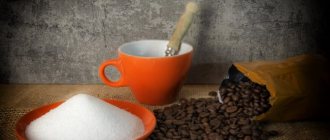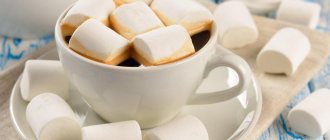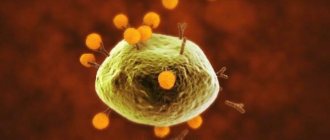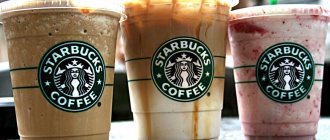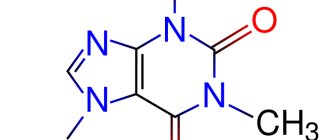When you wake up in the morning, or feel low in energy after lunch, what do you prefer as a source of energy: coffee or an energy drink? You may just need a good dose of caffeine, but it's the way you get it that really matters. Some people choose Red Bull, Monster, Adrenalin Rush, Burn or other drinks, others pour themselves another shot of espresso. We looked at the main parameters of both types of drinks to determine which is more harmful: coffee or energy drinks.
What is better in composition, what is more harmful: energy drink or coffee
By drinking espresso or Americano you, of course, will not get taurine, ginseng, mate and B12.
The good news is that you don't need nearly as much of these stimulants and vitamins on a daily basis. Some are designed to enhance the effects of caffeine, while others are added because it sounds good, even when there is no clear scientific evidence to support its effectiveness. Energy drinks contain a long list of ingredients such as glucose, sodium citrate, and artificial colors and flavors. They also usually contain extra vitamins, such as B12 and calcium, which should help give you an energy boost. However, your body does not absorb added vitamins that are naturally found in whole foods, so you should not rely on these added vitamins when making your choices.
Of course, B12 is a healthy and important vitamin, but most people get enough of it from their regular diet.
Coffee just contains coffee. Well, yes, Arabica contains more than 2000 compounds, but no one added anything synthetic or unnecessary to it for greater benefit. If you order coffee cocktails, the list of ingredients, of course, expands, but you can still choose a pure black at any cafe.
Where it all started. A little history
People have always tried to stimulate themselves with something in order to be stronger, run faster, hunt more successfully. Thus, humanity survived in difficult conditions. During both the First and Second World Wars, there were secret developments based on invigorating substances that soldiers took to maintain morale, and American special forces even today, before leaving for a hot spot, actively use the technology of pre-medicated sleep followed by the administration of energy drinks.
Athletes always consumed energy drinks before marathons or important performances in order to show excellent results. Any track and field athlete knows what carbohydrate loading and unloading is, and uses this technique to get a dose of explosive energy before a competition.
But for us office dwellers, a cup of coffee is enough to cheer us up. Or several. We also often drink various drinks that say “energy” on the can. What do we know about them?
Billionaire brands: which one is more successful?
In 2018 alone, the total sales of energy drinks in the United States reached $11 billion. The best-selling brand in the States is Red Bull ($4.6 billion), in second place is Monster ($4.1 billion), the rest are significantly behind the leaders. The situation in the world is as follows:
1. Red Bull2. Monster3. Rockstar Zero Carb4. Eastroc Super Drink 5. Hi-Tiger 6. Lucozade 7. NOS 8. Oronamin9. Burn 10. Adrenalin Rush
The Red Bull company was founded by the Austrian Dietrich Mateschitz in the early 80s , but the recipe for the drink was not his; The basis was the energy drink Krating Daeng (translated as Red Bull), which Dietrich met in Thailand.
Krating Daeng was popular among Thai truckers and workers - it was good for reducing drowsiness and adding energy. Mateschitz accidentally tried the drink in Thailand and was surprised to find that the energy drink helped cope with jet lag - jet lag. Together with the drink's producer Chaleo Juvidja, Mateschitz founded the new Red Bull company and launched a modernized version of Krating Daeng in the European market in 1987.
In 2008, Forbes included Juvidja and Mateschitz in the list of the richest people in the world in 260th place with an approximate fortune of $4 billion. In 2022, almost 7 billion cans of the drink will be sold worldwide.
The composition of Red Bull energy drink is richer than Lucozade: carbonated water, taurine, caffeine, B vitamins (B3, B5, B6, B12), sucrose, glucose, sweeteners, acidity regulators, dyes, flavors. One 250 ml can of Red Bull contains about 26 g of sugar - just over 5 teaspoons.
But there is a sugar-free option - Red Bull Sugar Free, which does not even contain sweeteners.
Manufacturers promise that the drink will relieve fatigue and drowsiness, increase vigor and tone.
Prices for coffee and energy drinks: which is more harmful to the budget?
250-330 ml cans of Red Bull or Burn cost approximately 90–100 rubles. Do you need two jars overnight? For 150–200 rubles you can buy a 250 gram pack of coffee. If you consider that for one cup the standard amount of ground coffee is 7 g (a heaping teaspoon or one pour into the coffee machine), it turns out that you get approximately 35 cups from one pack. So if we are talking about budget and savings, the question of what is worse, coffee or energy drink, is not even worth it.
If you buy a drink in a coffee shop (like you would grab an energy drink in a store), a serving of Americano will cost the same 80–100 rubles. But without chemical additives, a natural product. If you buy a drink from a coffee machine in a store, it will be even cheaper.
Effect of caffeine on the body
Caffeine is synthesized in plants specifically to protect it from being eaten by insects and animals. This substance is a good stimulant of the human nervous system.
When consuming caffeine, blood pressure increases, the pupils become wider, attention and intelligence increase, endurance increases, and the pulse accelerates. At the same time, caffeine blocks some enzymes and promotes the rapid breakdown of fats. Thanks to these properties, with constant consumption of coffee or, for example, Chinese green tea, people tend to lose weight and have greater stamina.
Conclusion
Despite the popularity of the drink, caffeine is on the International Olympic Committee's list of prohibited substances. Norm: 10-12 micrograms per 1 kg of athlete’s weight.
According to various official sources, caffeine consumption is permissible in the amount of 350-400 mg - this is the daily norm.
How much caffeine is in coffee and green tea (video)
France Bellisle – Doctor, University of Paris Nutrition
In today's article we will talk about the dangers and benefits of energy drinks with caffeine
.
Our expert will be Dr. France Bellisle, a researcher from the Nutrition Epidemiology Group of the University of Paris.
— Doctor, what are energy drinks?
— Energy drinks do not have an official, regulatory definition.
These include all drinks intended for physical and mental stimulation, increasing performance and alertness.
As a rule, energy drinks contain caffeine and sugar, and often contain additional ingredients (for example, taurine, B vitamins, plant extracts). The loud name “energy drinks” should give consumers an idea of vivacity and strength; it is more of a marketing one.
— How much caffeine is contained in energy drinks?
— Caffeine content can vary widely.
In most cases, between 80 milligrams (as in a cup of coffee) and 150 milligrams per serving. In Europe, energy drinks containing more than 150 mg of caffeine per liter must be clearly labeled as high caffeine content.
— Is there an upper, maximum permissible limit for caffeine?
— In 2015, experts from the European Food Safety Authority published their position on the safety of caffeine.
Let's sum it up
- There are no calories in coffee, and about 100 kcal in energy drinks per 250-gram jar.
- Your Americano can be sweetened with natural stevia. The finished product contains either a lot of sugar or artificial sweeteners.
- In terms of caffeine, drinks are approximately the same, but artificial additives often enhance its effect, so the answer to the question of what is more effective, what invigorates better, coffee or energy drink, is ambiguous.
- If we talk about the composition, you yourself understand what is healthier – natural coffee or synthetic energy drink.
If you have no other choice, there's nothing wrong with drinking energy drinks every now and then—it's almost like drinking soda. But if you have the opportunity and you are wondering which is more harmful, coffee or energy drinks, choose coffee because it is a natural source of caffeine. If you drink your coffee black, you don't have to worry about calories, sugar, or additives.
Caffeine is a common substance found in many drinks, most notably tea and coffee. It is an alkaloid, the correct name is theine.
For those suffering from cardiovascular diseases, consult your doctor.
Caffeine increases blood pressure for 3-4 hours, this is a proven fact. However, with regular consumption this effect is not so noticeable. In healthy people who do not exceed the permitted 400 mg, the risk of developing cardiovascular diseases does not increase. But for people with high blood pressure or those who have already suffered cardiovascular disease, in other words, for patients who are contraindicated for stimulants, the effects of caffeine intake are not so obvious. A moderate amount will not harm them, but it is better to consult a doctor about specific doses.
So, people with high blood pressure or a history of cardiovascular disease are not advised to regularly drink caffeine-containing drinks. There should be no harm from small portions, but it is better to seek advice.
Where is there more caffeine in coffee or energy drinks?
If you think that energy drinks contain more caffeine because it makes you feel more alert, this is not true. A standard 250-gram can of Red Bull has 80 mg of caffeine, while a large Americano from a machine has about 90 mg. Unless you're drinking from a large can, the amount of caffeine will be roughly comparable. There are energy drinks with an increased dose of caffeine, and there is decaf coffee. Keep in mind that a healthy adult can consume up to 400 mg of caffeine per day. In situations of stress or fatigue, this dose is reduced.
To avoid an attack of tachycardia, tremors in the hands and general weakness, it is worth controlling the amount of caffeine you get from any drink.
Although coffee contains more caffeine, additives in energy drinks, such as taurine, act as enhancers that can help avoid energy crashes and enhance athletic performance. So if you need a caffeine boost before you hit the gym, an energy drink can help you perform better in the gym.
A frequently asked question is: how many cups/mugs of coffee are there in energy drinks, which is more harmful? The answer is about one cup per 250ml jar.
Different quality of energy in coffee and energy drinks
Coffee can charge you with both mental and physical energy. While sipping a fragrant Americano, most people are able to concentrate perfectly, whether on work projects or driving. From this point of view, coffee is perfect for office workers, students, and in any situations where you need to be attentive and concentrated.
Energy drinks, according to many people, provide physical energy due to the large amount of sugar and stimulating additives. They also “bring you to your senses,” but at the same time it is often impossible to do creative work, complete a coursework, or come up with a presentation. I don’t want to sleep, but I don’t have concentration either, there is only the physical energy of the body.
Mixing two different types of stimulants to get the maximum effect from each is not recommended.
Pregnant and lactating women - handle with caution
The European Food Safety Authority recommends that lactating and pregnant women, as well as those planning a pregnancy, limit their daily caffeine intake to 200 mg. Some experts allow 300 mg/day, however, according to some reports, caffeine causes nausea in pregnant women and, much worse, the risk of miscarriage.
There are very few clinical studies on the effects of caffeine on pregnant and lactating women, and in such a situation it is wiser to limit the consumption of the alkaloid. In pregnant women, the time required to remove caffeine from the body increases by more than three times, so caffeine can accumulate: what you drink in the evening is added to what was stored in the morning, and the total dose of the substance circulating in the blood turns out to be higher than calculated.
So, pregnant and lactating women should not exceed the daily dose of 200 mg, although they are allowed 300 mg.
Sugar content in coffee and energy drinks: which is more harmful?
- Even if energy drinks are advertised as “sugar-free,” they contain artificial sweeteners, which are best avoided from your diet anyway.
- One Red Bull (250 ml) contains 26 grams of added sugar, which is more than half the recommended daily amount in a typical 2,000-calorie diet.
- Sugar-free versions of energy drinks are not very good for you because they contain artificial sweeteners such as aspartame and sucralose.
- But coffee can still be sweet and low in calories: try all-natural stevia instead of sugar and replace the cream with almond milk, which has a great taste, aroma and slight natural sweetness.
If you're concerned about your sugar intake, add just a spoonful of sugar or a natural sweetener to your coffee.
Symptoms of an energy drink overdose
With frequent use, it is almost impossible to avoid side effects of energy drinks and overdose. Symptoms of overdose are:
- poisoning;
- the skin becomes red;
- pressure rises;
- disorientation sets in;
- excessive sweating;
- insomnia appears;
- aggression;
- fainting.
In this case, it is necessary to immediately transport the victim to a medical facility, where he will be given first aid and gastric lavage. After this, a dropper is placed, which prevents the absorption of substances into the blood.


